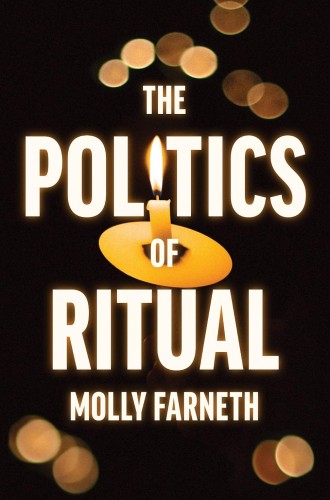The rituals we need
Religion scholar Molly Farneth shows how rituals—both civic and religious—change us and the societies we live in.
Our lives are redolent with rituals, from personal to promulgated, from silly to serious, from religious to civic and secular. In The Politics of Ritual, Molly Farneth casts a determined eye on the what, how, and why of rituals, demonstrating that they are important and perilous, encumbering and malleable. The professor of religion at Haverford College sees in American life a yearning for rituals—shared routines that are meaningful and significant and that have the power to create, sustain, and transform social and political worlds.
Rituals are engines of social cohesion which can bring people together for collective action. They are social practices which define who is included or excluded, who has power and who has none. Rituals mark and enact boundaries. They can dominate, exclude, and exploit—and they can uplift, include, and promote. Rituals are political in that they help to maintain community and can bring about communal reform. Or they can reinforce authoritarian regimes, distribute power unequally, and produce behaviors at odds with democratic ideals.
“The significance of civic ritual is best understood in light of theories and histories of religion,” writes Farneth. She examines theoretical and philosophical approaches to understanding how rituals—both civic and religious—evolve and how enacting them changes us and the societies we live in.





